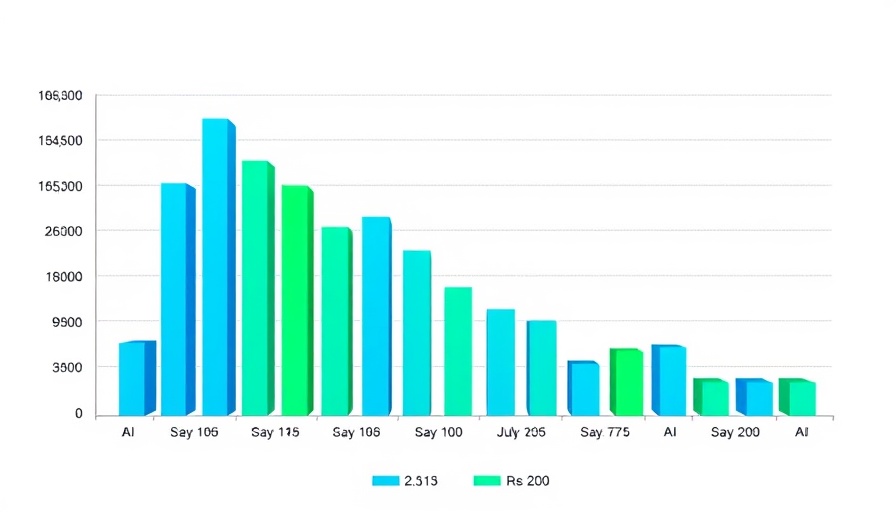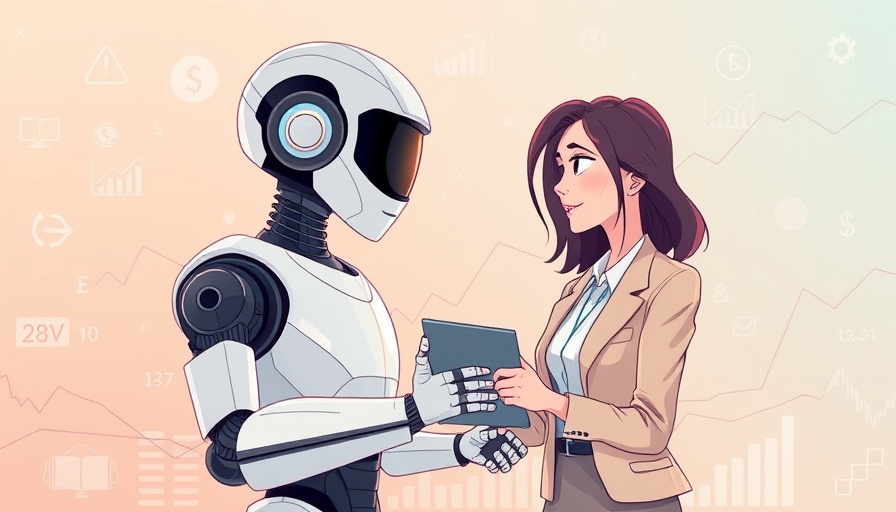
The Cognitive Crisis: Understanding the Impact of AI on Thinking Skills
The rapid integration of artificial intelligence (AI) into our daily lives is changing how we think and learn. Recent studies reveal that reliance on AI isn’t just enhancing efficiency; it’s profoundly reshaping our cognitive processes. A particular concern is cognitive offloading, where individuals transfer their cognitive tasks to machines, thereby reducing their mental engagement.
The Rise of Cognitive Offloading in Education
From calculators to search engines, humans have always relied on tools to ease cognitive burdens. However, AI takes this to another level. While earlier technologies fostered learning by simplifying tasks, modern AI systems like ChatGPT are evolving into entities that can generate ideas, arguments, and narratives that appear human-like. This shift introduces significant risks, primarily when it occurs unchecked within educational settings.
Understanding that AI functions as a logarithmic amplifier of previous technologies means recognizing that our cognitive dependence on it is unprecedented. Research indicates that individuals, particularly students aged 17-25, are showing alarming decreases in their critical thinking abilities directly correlated with their frequent use of AI tools.
The Alarming Evidence: Critical Thinking Decline
Studies highlight that students using AI for academic tasks exhibit lower critical reasoning and argumentative skills compared to peers who rely more on traditional research methods. According to a collaborative study by Microsoft and Carnegie Mellon University, student users demonstrated a clear trend of diminished independent problem-solving abilities due to increased confidence in AI tools. This is where cognitive laziness sets in—students gradually become passive observers rather than active participants in their learning processes.
Furthermore, research at the MIT Media Lab observed reduced neural engagement among those who wrote essays using AI assistance, indicating that AI-generated work didn't foster the deep cognitive engagement needed for memory retention and creative thought. This reliance doesn't just impede academic progress; it fosters long-term vulnerabilities that affect future learning and workplace effectiveness.
Addressing the Cognitive Decline: Practical Strategies
So, what strategies can content curators and educators implement to combat these challenges? First, integrating critical thinking skills into curricula is essential. For instance, programs should encourage students to evaluate AI-generated information rigorously and cross-reference it with credible sources.
Promoting reflective practices can also foster a metacognitive awareness among students. By regularly assessing how reliant they are on AI, students can actively work to balance technology reliance with cognitive engagement.
The Role of Balanced AI Utilization
AI should not serve as a crutch but rather a complement to human intellect. To achieve this, educational frameworks need to adopt hybrid decision-making models, maintaining a challenging environment where human-led analysis and decision-making coexist with AI capabilities.
For professionals, this means adjusting workplace practices. Companies can design roles that utilize AI for routine tasks while reserving complex problem-solving for human employees. This approach not only preserves cognitive faculties but also enhances job satisfaction through meaningful engagement.
Looking Forward: The Future of Learning with AI
The way forward requires a rethinking of AI’s role in both education and professional environments. As AI technologies evolve, it becomes critical to actively cultivate an environment that encourages curiosity, adaptability, and creativity. The balance lies in ensuring that while technology enhances efficiency, it does not replace essential human skills.
Essentially, as we forge ahead into a world where AI capabilities continue to expand, our focus should be on strategies that reinforce cognitive engagement and cultivate resilience against cognitive decline. By fostering critical thinking through innovative content curation in educational settings, we can champion a future where AI complements human intelligence rather than diminishes it.
 Add Row
Add Row  Add
Add 




Write A Comment